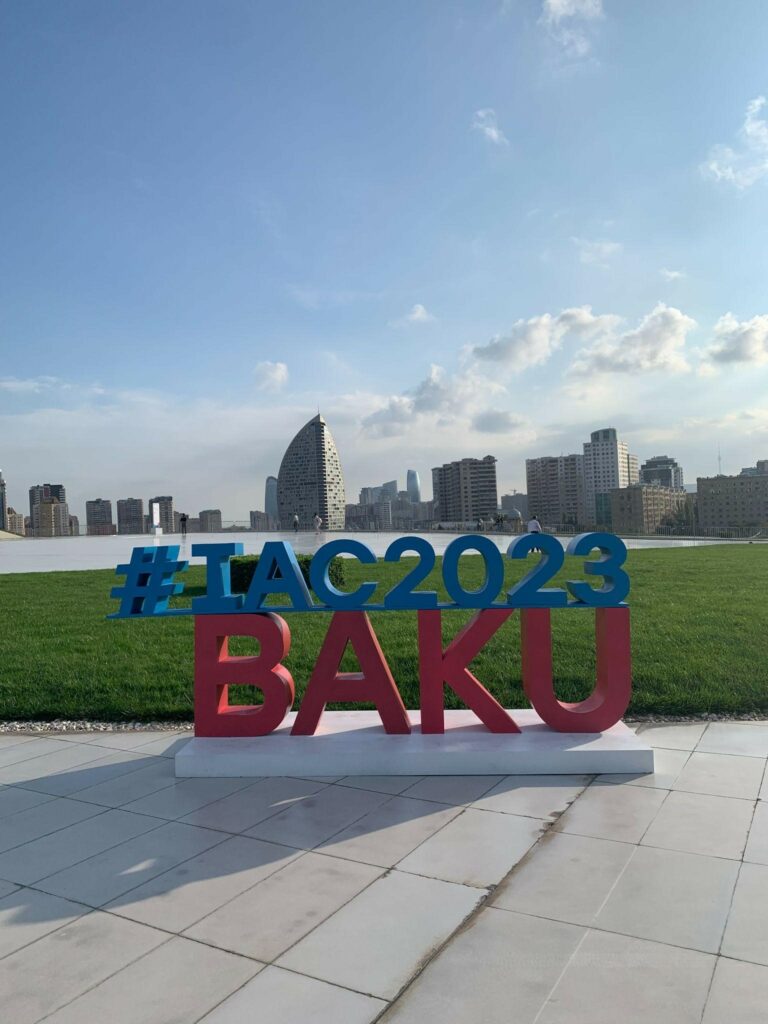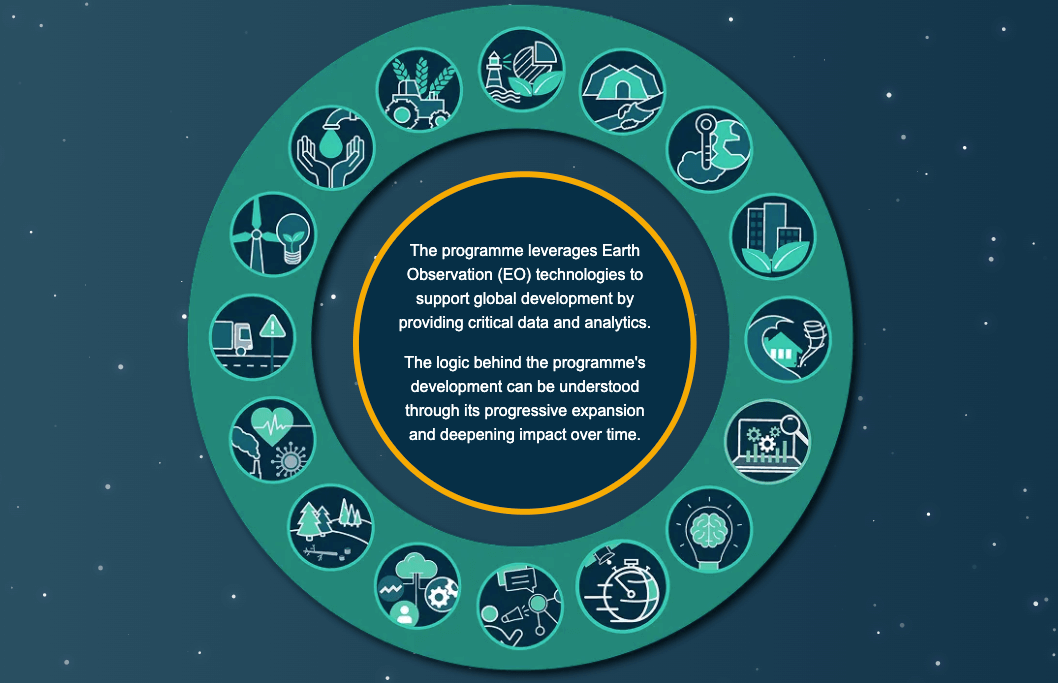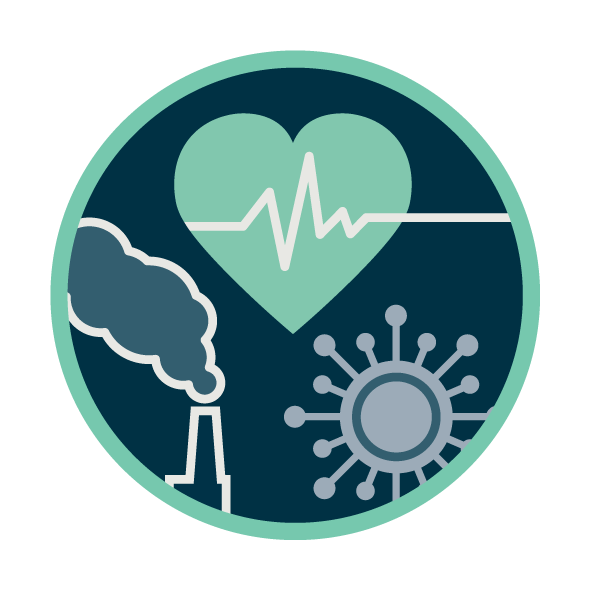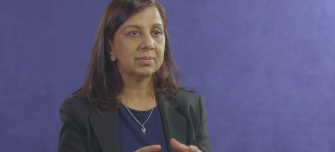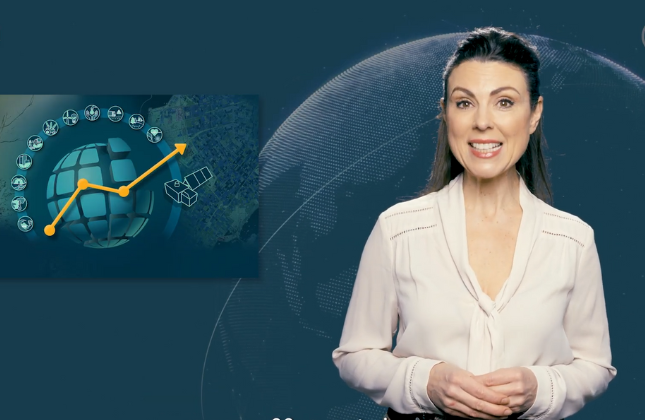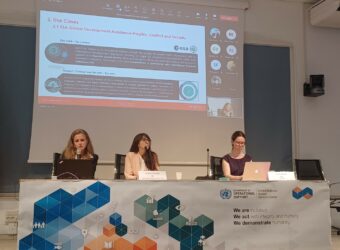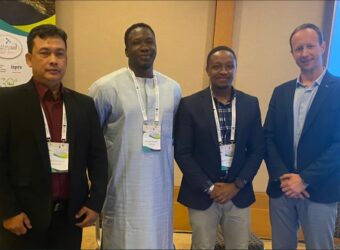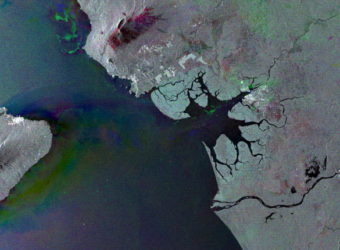During the 74th International Astronautical Congress (IAC2023), held in Baku from 2-6 October, leaders, thinkers, and innovators from around the world reflected on the broader spectrum of space and its direct influence on global development. From governmental roles in defining clear space strategies to the open-source revolution, IAC2023 emphasised the importance of collaborative approaches and inclusiveness in Earth Observation (EO) efforts. These are core principles of the narrative and operating structure that underpins ESA’s GDA programme.
The push for open-source data meets government and private engagement to drive global change.
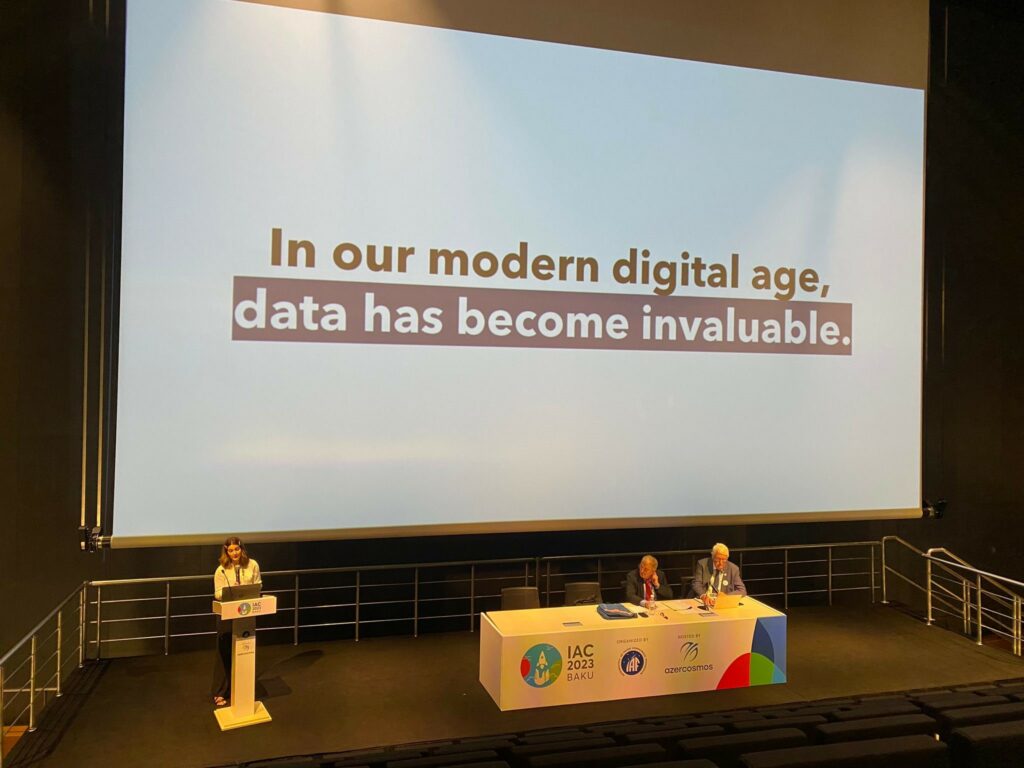
The open-source revolution and the general topic of data accessibility were central discussions in Baku. In a world where data is like a global currency, the push towards open data preannounces a crucial change in global perspectives. The availability of open and free data has helped extend access to space technology to a wider range of participants, including private companies, NGOs, and academia. In this context, the IAC2023 dialogues addressed the essence of interoperability and the requirements of collaboration.
“The golden age of EO data is happening, but we are sitting on the gold mine. […] We need to use data down to solutions which are scalable in every country, and this is not only the job of the government, but also the private sector must do something. […] We need a collective complementarity, because ultimately everyone is different, but each of us brings in something to make the solution happen faster, better and more efficiently.” Fani Kallianou De Jong, Principal Manager, European Bank for Reconstruction and Development (EBRD).
Around the world, governments are waking up to the pressing needs of the modern era: mitigating development challenges, channelling space capabilities for domestic growth and creating structures that foster cooperation. While the private sector continues to drive innovation in satellite applications, the support from public sector entities, such as space agencies, is vital. Their role as champions for these solutions ensures these advancements find their way into policymaking domains. This partnership not only highlights the utility of these innovations, but ensures they have a lasting societal impact.
“To have a sustainable environment, collaboration is essential. We have to break the barriers between governments and the private sector to work hand in hand and get the better benefits from EO data to fight the current challenges.” – Ismat Bakhishov, Director of GIS Center, Azercosmos
The GDA programme is an example of collaboration between the public and private sector
Specific initiatives emerge as pivotal in bridging the gap between satellite technology and governmental entities, and the GDA programme is one of these. Situated at the nexus of EO, governance, and global development, GDA brings space tech expertise into the global sustainable development agenda and institutional structures.
The programme’s modus operandi is based on demand-driven cooperation with international financial institutions (IFIs) such as the World Bank (WB) and the Asian Development Bank (ADB). It emphasises the mutual benefits and knowledge sharing in the EO domain, through a collaboration encompassing the private sector (European EO service providers), ESA (intergovernmental, public sector), and the international development financing ecosystem (where IFIs mobilise, channel, and leverage resources through diverse grant and lending instruments). By promoting agile development cycles and iterative feedback loops, GDA champions a responsive, user-centred approach at the interface of the space and development assistance sectors.
In line with IAC2023’s vision, the GDA programme not only prioritises the availability of EO data and its applications, but supports their widespread accessibility and ultimate operational adoption. By narrowing the divide between tech advancements and policymaking, GDA serves as a reminder that space is a domain of shared opportunities and collective growth.
The IAC in Baku was more than a momentaneous assembly of ideas; it was a testimony to the spirit of cooperation and innovation, embodied by the GDA programme. These reflections shouldn’t be only passing thoughts, but should form the backbone of a broader story in which the GDA programme stands as a beacon, linking space technology with global aspirations.
